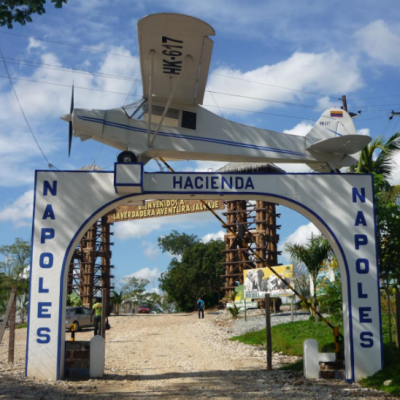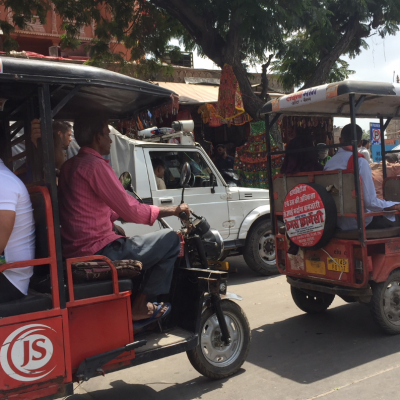The sage of Omaha, Warren Buffet, once famously said that ‘price is what you pay; value is what you get!’ He was talking about choosing stocks but the principle holds true for practically everything that is traded and travel arrangements are no different. The Internet is an amazing resource which millions of users benefit from and it is certainly a useful (albeit time-consuming) tool that consumers use when they are researching their next trip abroad. The problem with the medium though is the fact that many consumers tend to measure and compare various options — whether they be airline fares, hotel rooms or cruise itineraries etc. — by little more than price, often doing themselves and the services or products on offer, a disservice.
Take air fares for example: Say, someone wants to fly from Dublin to London, a distance of approximately 290 air nautical miles and a flight time that takes around 60 to 75 minutes. Many tend to rationalise that since the journey time is only going to take an hour, why bother to evaluate the pros and cons of which airport is better or which carrier represents greater value for money since they’re not going to be up in the air long enough for any of that to matter! Whoever is offering the cheapest fare surely gets to capture their business?
The fact of the matter is that such ‘details’ do matter! The greater London area is served by four airports (five, if you include Southsea) the other four being Heathrow, Gatwick, Luton and Stansted. So straight away, they need to question which arrival airport is in closest proximity to their final destination within London as that will have a significant bearing on the following factors:
- The journey time to their final destination.
- The roundtrip cost of that ticket
- The frequency of the service being provided
- The ease with which they can access the mode of transport from the arrivals terminal. (In Luton for example, you need to queue for a shuttle bus to take you to the local rail station in order to get a regional train service into central London.
Other variables that might also negatively impact on their brief customer ‘experience’ might also include factors that they may not have even thought of such as:
- The terminal facilities that they can avail of on the return journey (particularly if there is a long flight delay).
- The efficiency of the security protocols in place (how long it takes to get through).
- Whether or not the airport in question is more prone to flight delays or cancellations due to adverse weather conditions. (Some airports suffer more from fog than others, for example).
- The number of check-in desks made available to board flights. (Fewer open check-in desks equals longer queue times).
- Distance of departure gates from main departure (or arrival) terminals ( A problem if you’re older, unsteady on your feet or nursing a recently injured limb!)
- Quality/range of duty-free shopping.
And we haven’t even covered the choice of airline yet and which is often determined by your choice of airport. Ask yourself, are any of the following factors likely to adversely affect your enjoyment of your flight between A and B?
- The size and type of aircraft that you fly on (The larger the aircraft, the smoother the flight — a factor to always bear in mind if you are a nervous traveller)
- The seat pitch — e.g. the distance from your seat to the seat back in front of you. (An extremely important factor if you are tall and especially if you are going to undertake a flight duration longer than a few hours)
- The generosity of the free cabin baggage allowance (Also, you may not be able to fit your cabin luggage in the overhead bin of some smaller aircraft)
- The costs of all those hidden extras such as checked-in baggage, seat assignments, in-flight catering etc.
And as if that wasn’t enough, we haven’t even begun to cover the relative merits of competing airlines when it comes to the friendliness and helpfulness of their staff and their willingness to ‘bend the rules’ occasionally due to human error!
But there’s more: What kinds of conditions attach to each air fare type — particularly in those instances where travel plans become disrupted due to unforeseen changes in circumstances (sickness or bereavement, new job offers, incorrectly booked dates/flight in the original reservation etc.)? Will you have to take out a second mortgage on your property in order to pay for the change fees or penalties?
The fact of the matter is that even the simplest travel arrangements belie a level of complexity in decision making that often goes over the heads of many people with often costly consequences. That’s why using a travel agent to make such arrangements on your behalf often works out cheaper in the end as they act as a devils’ advocate by asking all the relevant questions that perhaps even you haven’t thought of — ‘prevention being better than cure’ — being the order of the day.
There are even more factors to consider than just the above but I think I’ve laboured the point enough at this stage for you to get the general idea. Of course, I’ve only been talking about simple point-to point air fares between Dublin and London. What about those more convoluted routings to far flung destinations around the world where the level of complexity increases almost exponentially because of things like higher intermediate points, maximum permitted mileages, free stopovers, passport and visa requirements, inoculations, personal security issues, monsoon seasons etc., and don’t even get me started on choosing the perfect cruise!
So you see, using a travel agent isn’t just about paying them to find you the cheapest way of getting from A to B. It’s about revealing where the value lies and delivering it to you and in a manner that will enable you to enjoy the process of travelling to your destination so that the journey itself becomes almost (but not quite) as enjoyable as the destination itself!





